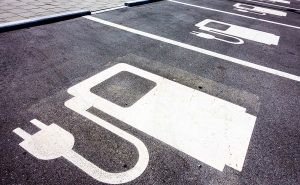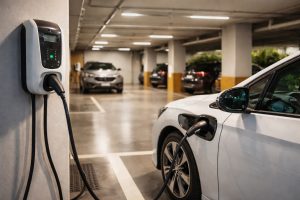
Autel, Enel X, Hitachi and Voltway Discuss Mexico’s Freight Infrastructure and North America Integration
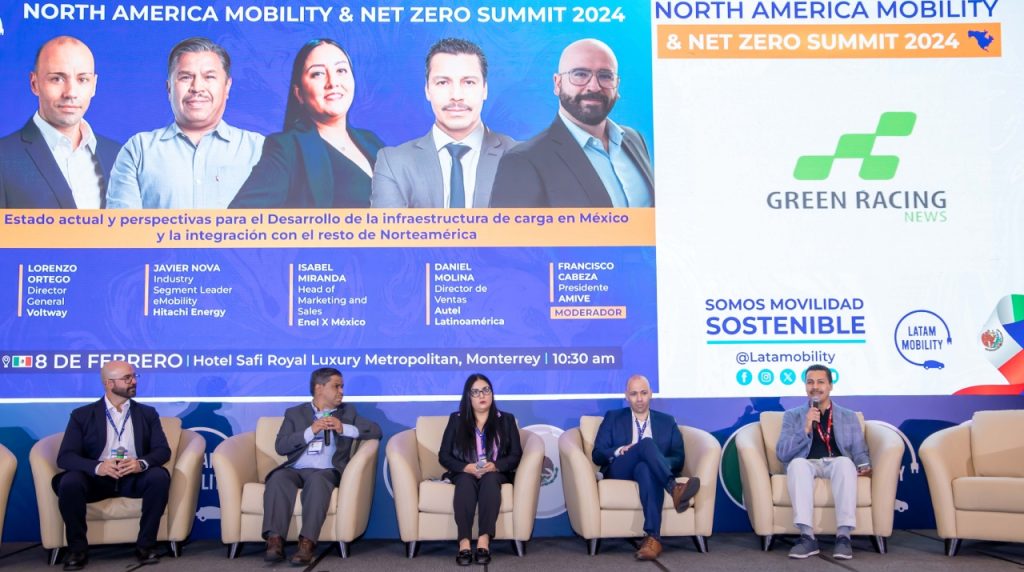
During the 2024 North America Mobility & Net Zero Summit in Monterrey, Francisco Cabeza, the president of the Mexican Electric Vehicle Industry Association (AMIVE), emphasized the imperative to tackle challenges in Mexico’s electric infrastructure given the swift expansion of electric mobility nationwide.
Despite the potential for renewable energies, Mexico lacks a comprehensive strategy in regulations and standards for the necessary infrastructure, as evidenced by the rapid doubling in the adoption of electric vehicles from 2022 to 2023.
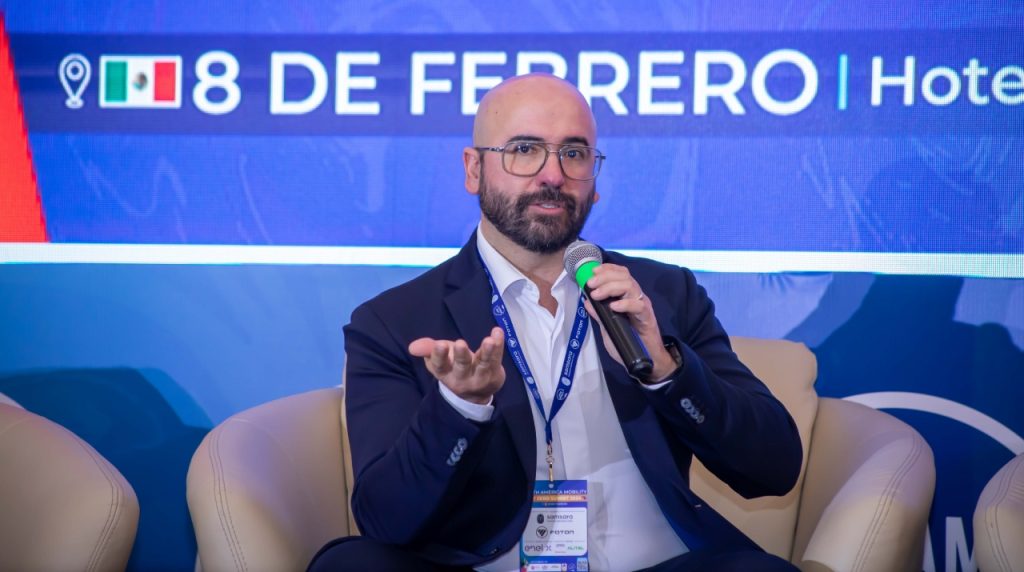
The intricacies of electric mobility necessitate a robust infrastructure comprising charging stations, transmission and distribution networks, and sufficient electrical capacity at charging points. This stands in contrast to the oversimplified notion of considering a mere plug as a solution.
Cabeza underscores the importance of meticulous planning and access to a dependable electrical grid for electric charging stations. He also highlights the significance of factors such as harmonics for maintaining electrical system stability. Furthermore, the integration of “as a service” business models presents an opportunity to promote electric mobility and mitigate CO2 emissions.
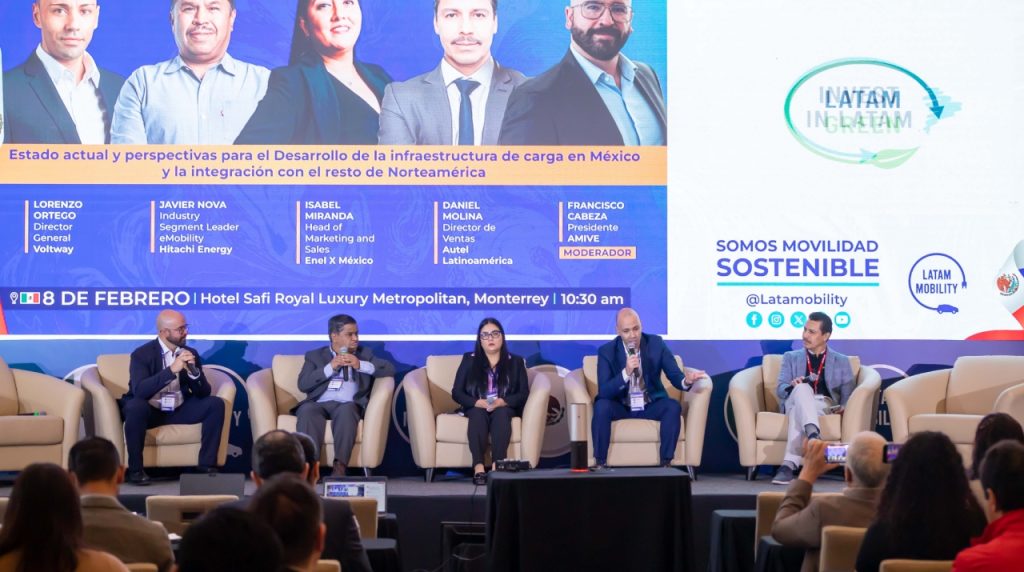
In that vein, Cabeza took on the role of moderator for the panel discussion titled “Current Landscape and Future Prospects for Charging Infrastructure Development in Mexico and its Integration with the Rest of North America,” featuring experts from various organizations dedicated to advancing this objective.
He welcomed Daniel Molina, Sales Director at Autel Latin America; Lorenzo Ortego, CEO of Voltway; Isabel Miranda, Marketing and Sales Manager at Enel X; and Javier Nova, Electric Mobility Segment Leader at Hitachi Energy. Together, they provided insights into their companies’ visions and shared the internal actions, projects, and proposals they are pursuing.
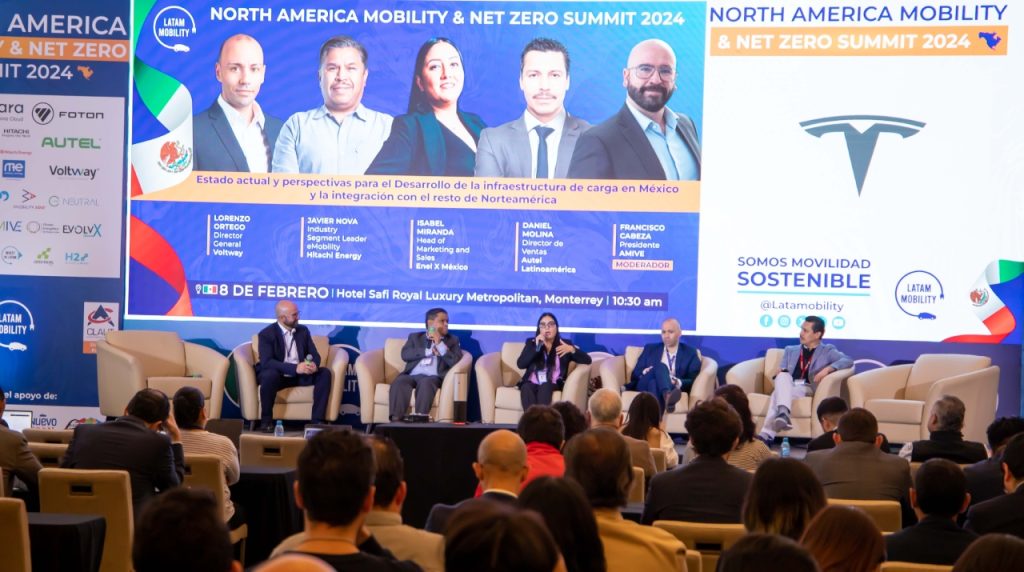
Industry Experience
The pursuit of environmentally friendly solutions has become paramount in today’s landscape. In this context, Daniel Molina, Sales Director of Autel Latin America, provided insight into how electromobility is reshaping the automotive industry and how Autel is at the forefront of this transformation.
Originally rooted in China, Autel has been a leader in automotive diagnostic solutions since 2004. However, its recent venture into electric vehicle chargers marks a significant stride towards a more sustainable future.
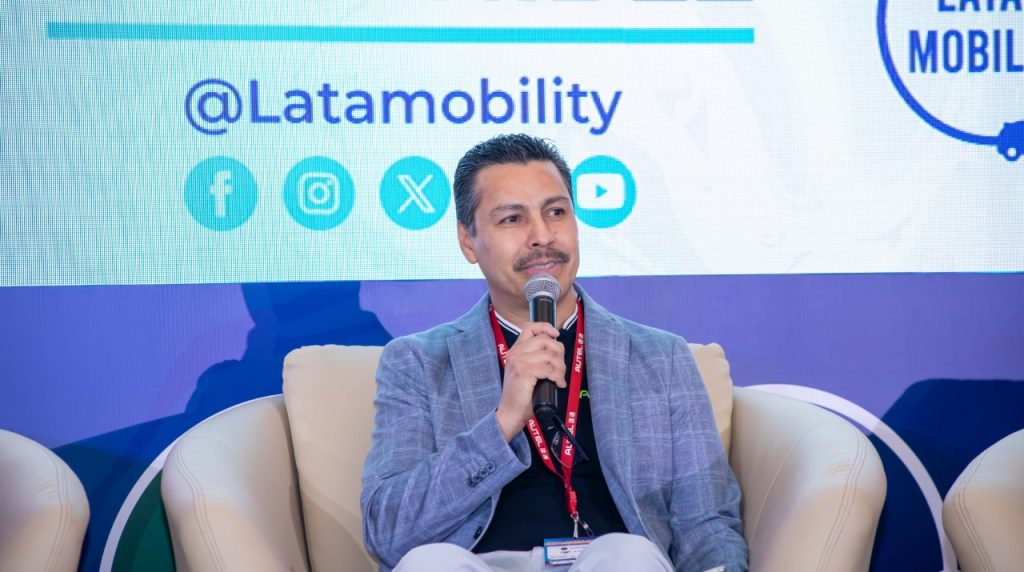
Molina underscores that mobility transcends mere vehicular transport; it encompasses a spectrum from walking to utilizing mass transit like trains and planes. In this light, the electrification of transportation emerges as an undeniable trend, with electric vehicles taking center stage.
Autel’s vision is crystal clear: to deliver comprehensive solutions spanning from chargers to maintenance and energy management. Molina stresses that while the shift towards electric vehicles is inevitable, it also presents vast opportunities. The company is deeply committed to research and development, allocating substantial resources to expedite the adoption of this technology.
With research hubs in China, Europe, and the United States, Autel is positioning itself as a pivotal player in the global electric charger market.
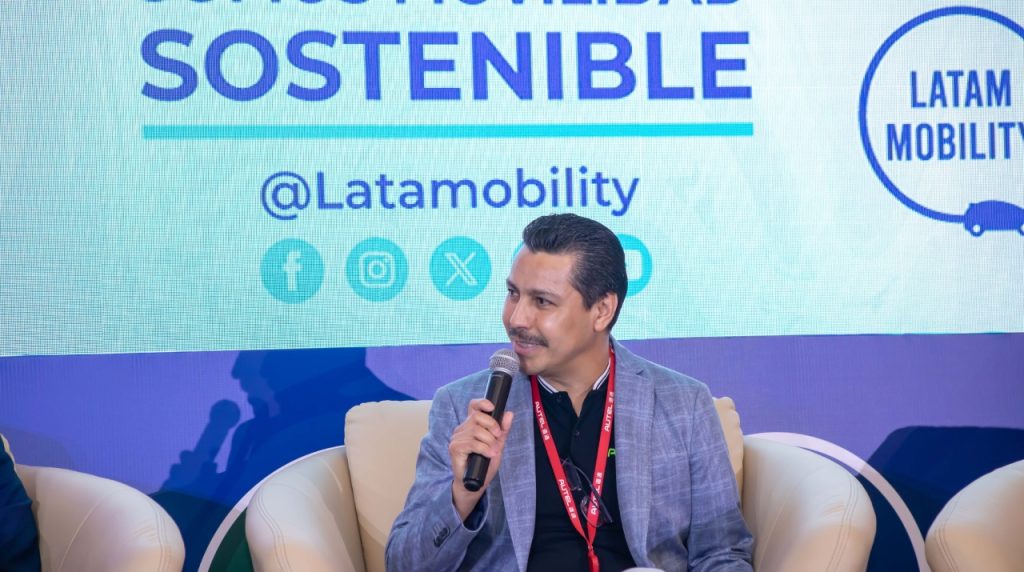
Autel chargers are distinguished by their compatibility with a diverse array of electric vehicles and their emphasis on safety and efficiency. Molina accentuated the significance of establishing seamless communication between charger and vehicle, ensuring optimal charging while avoiding issues such as abrupt disconnections.
Moreover, the company is actively developing innovative energy storage solutions, enabling smarter and more efficient electricity management. It anticipates that the future of electric mobility will usher in further advancements, and Autel stands ready to lead the charge.
Innovation, Technology, and Efficiency
These are the pillars on which companies like Voltway are reshaping the energy landscape. Under the leadership of Lorenzo Ortego as CEO, Voltway has emerged as a trailblazer in the realm of electromobility.
Since its inception in 2021, Voltway has leveraged its extensive experience in both the European and global markets to craft a strategic vision aimed at seizing emerging opportunities, particularly within the electric fleet sector.

Ortego highlights the significance of fleets as a prime niche for last-mile distribution and public transportation, especially with the uptake of electric buses, offering not only environmentally friendly solutions but also fertile ground for solid business cases.
Yet, Voltway’s true strength lies in its unwavering dedication to technological innovation and energy efficiency. Established in 2008, the company has been at the forefront of researching, developing, and implementing cutting-edge charging technologies.
From basic power sources to sophisticated high-power modular systems, Voltway has continuously evolved to prioritize energy efficiency and resource optimization.
Their emphasis on intelligent charging management, employing power balancing systems that dynamically adjust supply to match real-time demand, serves as a robust strategy, alleviating strain on the electrical grid, particularly during peak usage periods.

Moreover, Voltway understands the importance of adhering to local regulations and standards, thus contributing to the stability and standardization of Mexico’s charging infrastructure. This commitment to harmonization and compatibility ensures sustainable growth and seamless integration of electromobility nationwide.
Ortego underscores a crucial distinction – unlike nascent markets of the past, Mexico is embracing electromobility armed with mature, proven technologies. This enables Voltway and similar companies to deliver bespoke solutions tailored to Mexico’s unique market needs, bypassing the trial-and-error phase and maximizing resource utilization.
Integrated Solutions
On the journey towards a more sustainable transportation system, Enel X is at the forefront, offering groundbreaking solutions and forging the necessary infrastructure to drive sustainable electrification.
Isabel Miranda, Enel X’s Marketing and Sales Manager, delves into the realm of sustainable electrification, underscoring the criticality of embracing renewable energy sources across all facets of our lives.

From electric mobility to intelligent public lighting, Enel X pledges to deliver holistic solutions that address the imperative for electric vehicle charging, fostering a comprehensive ecosystem of clean and efficient energy.
At the core of this transformation lies charging infrastructure, a pivotal element in facilitating the widespread adoption of electric vehicles. Miranda stresses that while the shift towards sustainable mobility is inevitable, apprehensions regarding a dearth of charging infrastructure often impede progress.
Hence, Enel X is steadfast in its commitment to erecting this infrastructure, ensuring energy derives from sustainable and renewable sources. However, the vision extends beyond mere provision of electric chargers; Miranda emphasizes the importance of crafting an entire ecosystem that seamlessly integrates electrical infrastructure with mobility, fostering synergies that drive market efficiency and sustainability.
One illustrative model is the “Charging as a Service” paradigm, which offers end-to-end creation and management of charging hubs as a comprehensive service. Additionally, Enel X is pioneering another model, the “E-Bus as a Service,” which encompasses the provision and layout of charging hubs alongside electric bus financing for public transportation.

Miranda thus accentuates the positive impact that electrifying public transportation can have on air quality and public health. Drawing on data from the International Association of Public Transport, she underscores how increased utilization of electric public transit could substantially benefit the environment and mitigate air pollution.
Electric Mobility
The pressing environmental challenges and the imperative to shift towards more sustainable modes of transportation have spurred the emergence of electric mobility. In this landscape, Javier Nova, spearheading the electric mobility segment at Hitachi Energy, provides insight into the company’s endeavors in electrification within the sector.
With over a century of market experience and renowned for its groundbreaking solutions in electrification, Hitachi Energy acknowledges the burgeoning significance of electric mobility in today’s scenario.
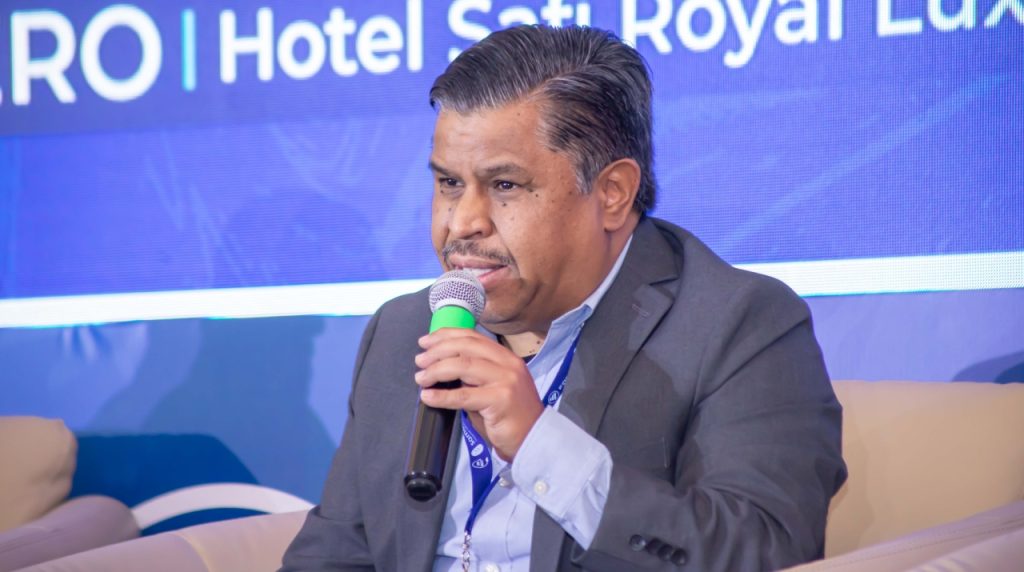
Nova emphasizes that Hitachi has already carved out a dedicated segment for electric charging infrastructure, encompassing equipment in substations and electric vehicle charging points.
The company’s approach extends beyond mere provision of electrification solutions; it aims at delivering comprehensive support across various industries, from consumers to manufacturers and passenger transport firms. This includes expert consultancy from the outset, tailoring solutions to meet specific customer needs.
Hitachi’s extensive experience in managing electrical energy, spanning over a century, is evident in its cutting-edge manufacturing and design of electrical substations, pivotal for ensuring efficient and dependable electric vehicle charging.
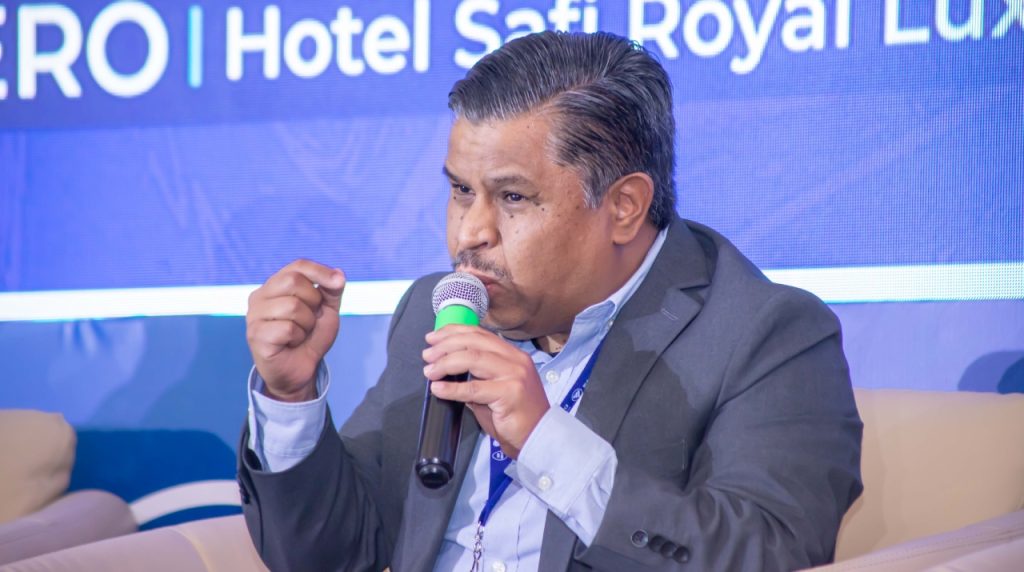
Consequently, its focus lies on deploying charging stations, furnishing transformers, capacitor banks, and voltage fluctuation mitigation systems, ensuring a steadfast and secure energy supply.
In addition to the technical aspects, Hitachi Energy also addresses pivotal facets of energy efficiency and integration with the prevailing electrical grid. This entails considering variables such as power factor and harmonic management, ensuring that the electric charging infrastructure is not only sustainable but also compatible and synergistic with the global electrical grid.




